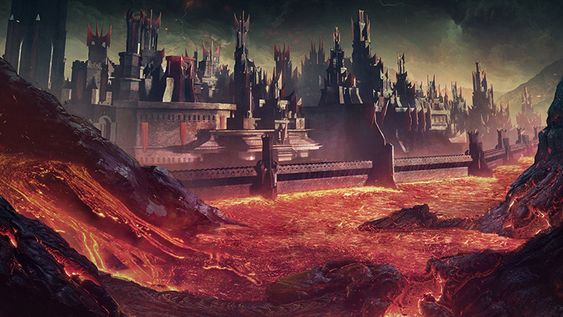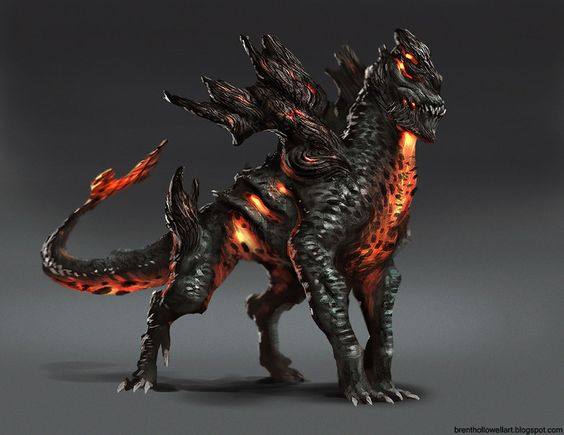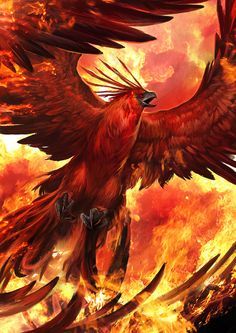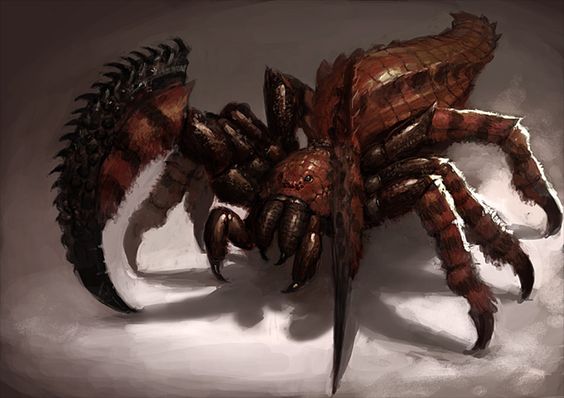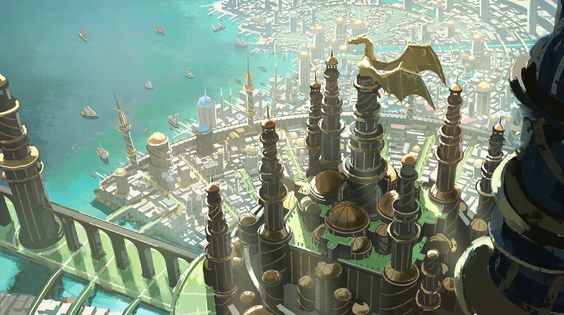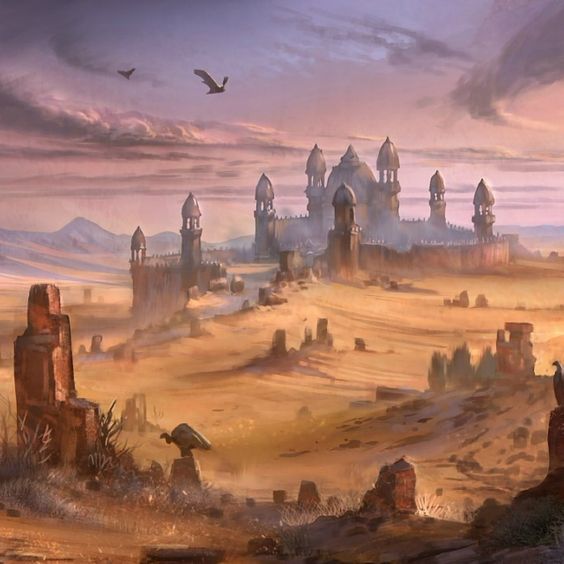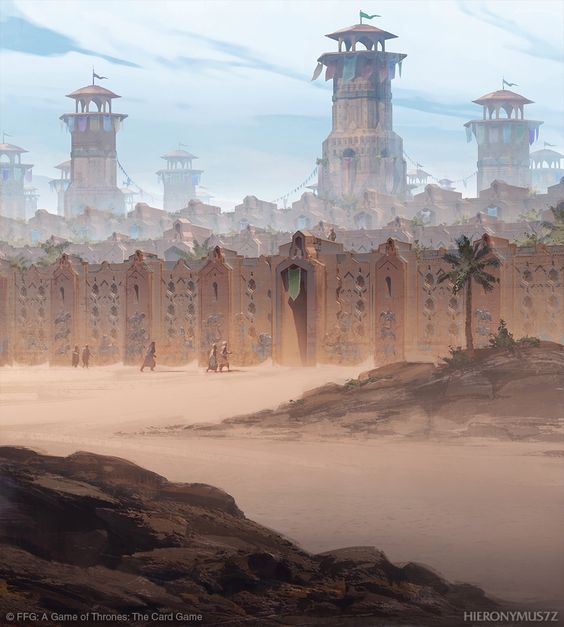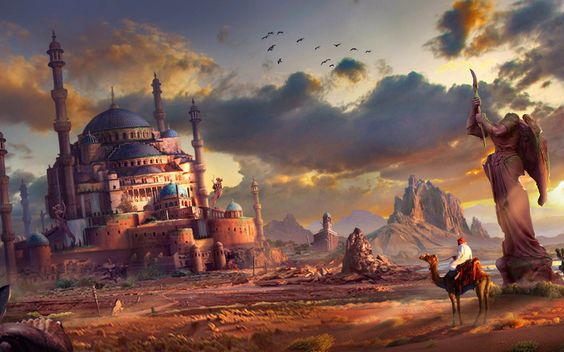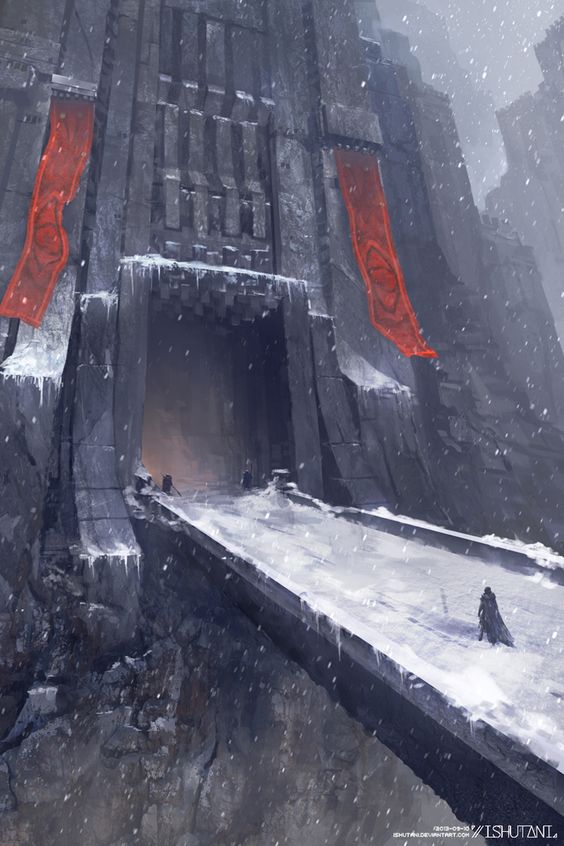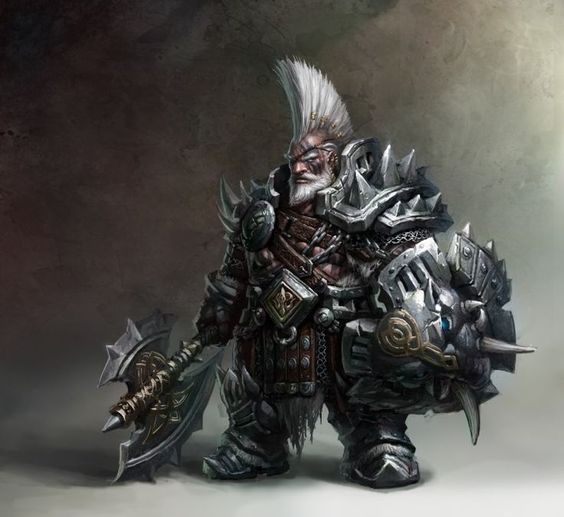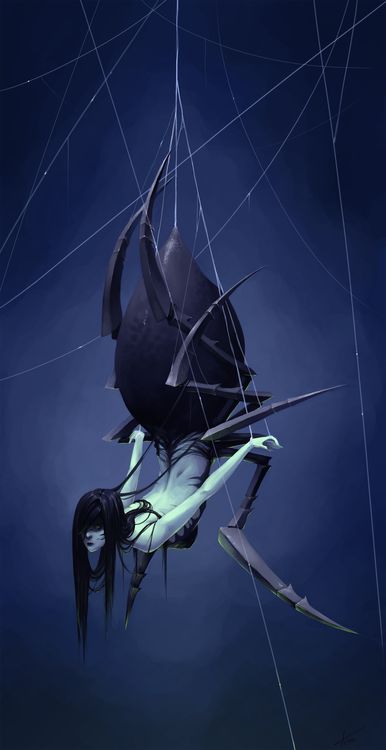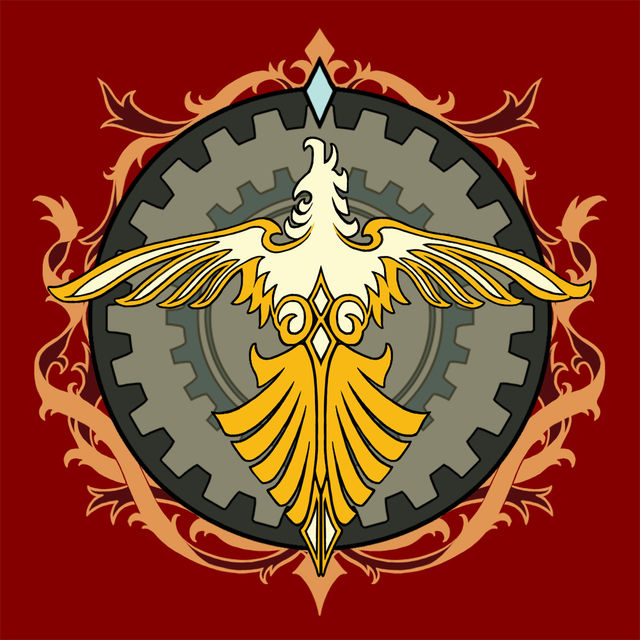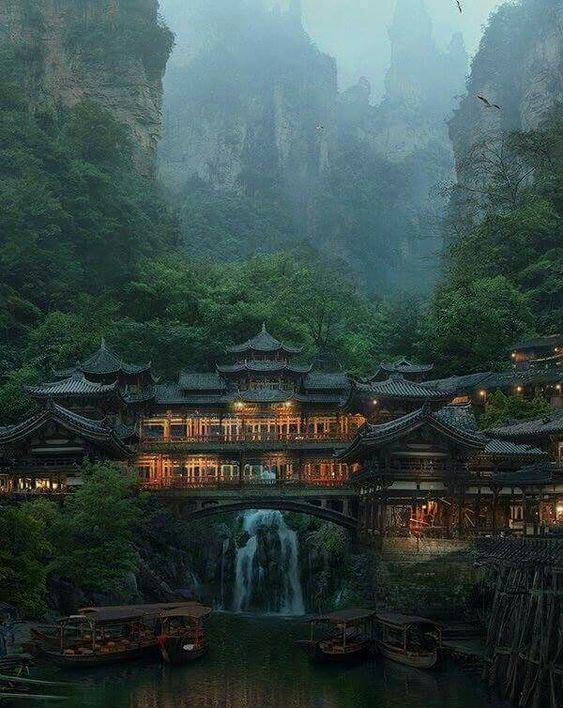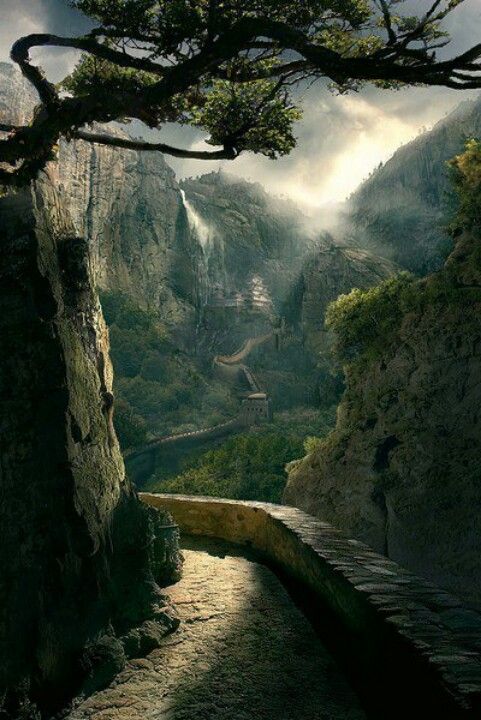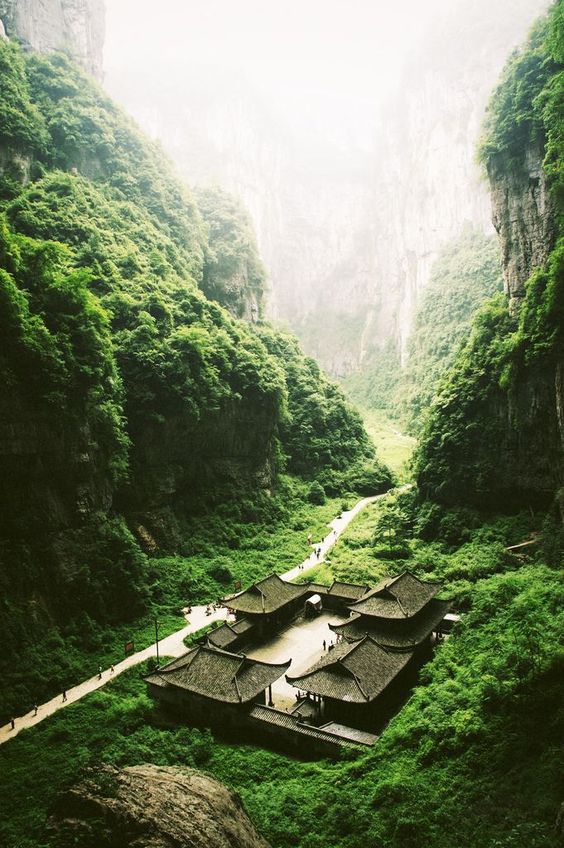shadowz1995
Amoeba of Wisdom
Magic in Linhael comes from one of two places. It comes from within or from a person's surroundings.
The Primal fonts of pure magic energy radiate across the land from their origin and all people born within it, are affected by it in some way. Not everyone is born with magic but the ones who do have the gift are often influenced by two things. The first is where and the second is who.
If an individual was born in the FK (fire kingdom) and has parents who are also from the FK, the chances are immense that the child will be born with fire magic or no magic at all. Magics can not cross with one of another. A child with a WK (Water Kingdom) and an FK parent will have one or the other. Mixed parents born in the FK will most likely have the child born with fire magic. Even one of the parents was from Earth.
The other type of magic is Racial magic or magic that comes from within. This is magic that a certain species or race is born with. For ex. A vampire is generally highly gifted in Blood magic because of their race. Not because of the magic the world is permeated in. This type of magic is more commonly found in monsters but can be found in beings like fae, valkyries, ice elves, mountain elves, and so on.
The Primal fonts of pure magic energy radiate across the land from their origin and all people born within it, are affected by it in some way. Not everyone is born with magic but the ones who do have the gift are often influenced by two things. The first is where and the second is who.
If an individual was born in the FK (fire kingdom) and has parents who are also from the FK, the chances are immense that the child will be born with fire magic or no magic at all. Magics can not cross with one of another. A child with a WK (Water Kingdom) and an FK parent will have one or the other. Mixed parents born in the FK will most likely have the child born with fire magic. Even one of the parents was from Earth.
The other type of magic is Racial magic or magic that comes from within. This is magic that a certain species or race is born with. For ex. A vampire is generally highly gifted in Blood magic because of their race. Not because of the magic the world is permeated in. This type of magic is more commonly found in monsters but can be found in beings like fae, valkyries, ice elves, mountain elves, and so on.
World magic and Racial/Individual magic both have drawbacks and advantages.
World magic is unique in the way that person draws from the magic or energy of the Divine Font they belong to. The closer a LK (light kingdom) soldier is to his kingdom, the stronger he becomes. This also applies to the Rulers of those kingdoms. Their power is still far beyond anything any citizen of their respective kingdoms could achieve but even they fall under this category. The closer they are to home, the stronger they become. Likewise, when someone starts pushing away from their homeland and into enemy territory, they begin to weaken. This is the main reason that no kingdom has been successful over the many millenia of wars and attempted take overs.
Racial/Individual magic's biggest and most glaring weakness comes from the fact that the magic is reliant on the individual's stamina or energy. The Divine Fonts have no influence on this type of magic and once they are exhausted, casting becomes nearly impossible.
The most glaring issue is also it's one of it's best strengths. Racial magic or abilities are not influenced by the Divine Fonts, which means they also do not weaken in enemy territory. The power stays the same no matter where the individual may go and is only influenced by the training or lack thereof that the individual goes through. In general, it is a weaker magic than World Magic but it does not suffer from environmental influences
World magic is unique in the way that person draws from the magic or energy of the Divine Font they belong to. The closer a LK (light kingdom) soldier is to his kingdom, the stronger he becomes. This also applies to the Rulers of those kingdoms. Their power is still far beyond anything any citizen of their respective kingdoms could achieve but even they fall under this category. The closer they are to home, the stronger they become. Likewise, when someone starts pushing away from their homeland and into enemy territory, they begin to weaken. This is the main reason that no kingdom has been successful over the many millenia of wars and attempted take overs.
Racial/Individual magic's biggest and most glaring weakness comes from the fact that the magic is reliant on the individual's stamina or energy. The Divine Fonts have no influence on this type of magic and once they are exhausted, casting becomes nearly impossible.
The most glaring issue is also it's one of it's best strengths. Racial magic or abilities are not influenced by the Divine Fonts, which means they also do not weaken in enemy territory. The power stays the same no matter where the individual may go and is only influenced by the training or lack thereof that the individual goes through. In general, it is a weaker magic than World Magic but it does not suffer from environmental influences
Magics outside of the elemental powerhouse magics can more often than not be learned by anyone with enough study. That being said, certain races are more inclined and talented in certain internal magics than others who may be weaker in that field. This is the list we have so far on the discussed races and is updated frequently.
Vampires: The most talented race in blood magic with a minor in necromancy.
Humans: No real disadvtanges but no real talents either. A jack of all trades type of race.
Demons: Specialize generally dark and flame (demonic. Not to be confused with FK power) magic but have a wide range possible abilities. Demons are born with their abilities and cannot learn new ones. This is specific to them.
(To be continued)
Vampires: The most talented race in blood magic with a minor in necromancy.
Humans: No real disadvtanges but no real talents either. A jack of all trades type of race.
Demons: Specialize generally dark and flame (demonic. Not to be confused with FK power) magic but have a wide range possible abilities. Demons are born with their abilities and cannot learn new ones. This is specific to them.
(To be continued)
This is a list of the races players can choose from. The list is subject to change as more ideas are added from players. Disclaimer: if you want to add a race that is not on the list, it must be confirmed by me first and I do have the final say.
Fairies:
Fairies and they're derivatives are generally very pure creatures that are beloved by all races. They tend to be mischievous with strangers and like to play practical jokes but are otherwise very kind and innocent. They are generally small in stature, ranging between several inches to roughly 2 feet in height, depending on the variant of fairy and have a strong inclination towards the defensive/support based magic. They aren't very long lived, averaging 40-50 years of life across all variants and are capable of reproduction. Reproduction is done via an extensive, intimate ritual where the participants exchange parts of their soul with one another, effectively becoming a part of each other. The bond is for life and when one partner dies, so does the other or they enter a death like state of being. They generally don't mingle with species outside their own but it is said that the Fae species was a result of such a union that continued on their own course of evolution.
Variants:
Elemental Fairies- The most common fairy types. They belong to one of the 5 elements and tend to never leave those zones. They average 6-12 inches in height and live roughly 45 years. Specialties are the defense/support oriented magics of their element.
Pixies- The most mischievous breed of fairy, averaging 5 inches in height and often have a gray skin tone and large, black eyes. They can live up to 60 years and tend to specialize in illusion and charm magics. They cannot use the elemental magic of the realm and are generally seen as pests or vermin.
Hexies- Generally a very malicious breed of fairies who have taken on a purple/violet hue of hair and eyes with pale white skin. They average 1-2 feet tall and usually short-lived. Clocking in at 30-35 year lifespan on average. They are also the only breed of fairy talented in hexes and curses, hence the name and are generally hunted down once discovered due to their spiteful and malevolent nature.
Fae: It is said that the fae were the descendants of a human/fairy pairing that never died out and became its own race thousands upon thousands of years ago. It is unconfirmed but that is generally the accepted theory across Linhael. Regardless, Fae are generally humanoid in appearance and have a far greater variety in physiology depending on their environment than other species with that same adaptability. Elves and all of their different types come to mind. They can be anywhere between 1-10 feet tall and vary immensely depending on the environment. So much so, that it is impossible to put them into an average and they are generally judged by the specific species as opposed to the mother branch of the race.
Variations:
Nymphs- An all female derivative of the fae race, typically falling into one of the 5 categories of magical element. They average 5' 6 in height and live to be approximately 300 years old. They are typically considered to be guardians, as once they come of age, they are sent on pilgrimage from their birth sanctuary to find an area within nature they deem worthy of their protection. These areas tend to be away from civilization and can range from a lake in a forest to a desert to a mountain range if they so please. They can only have offspring once every 100 years and the offspring is always another nymph. Being an all female race, they can mate with a wide variety of males from other species, excluding demons or undead due to the clash of their natural affinities.
Selkies- A sea variant of fae that can transform into seals when they are in the ocean (salt water). They appear to be entirely human and follow the averages of humankind until they get in the water. Selkies are typically born from selkie parents but on the occasion of a mixed breed couple, the child will always be one or the other. Completely. Selkies cannot live away from the sea for an extended period of time and they will gradually start to weaken if they don't have access to salt water. Typically live for 200 years with some variation.
Dryads- Another entirely female race that make their homes within forests, swamplands, and jungles. Wherever there is a concentration of nature is where the dryads will be. Most dryads are found near the Earth Kingdom and it is very rare for them to drift away from their birth forest. They take on very plantlike features and are blessed with control over wildlife, both flora and fauna. They tend to be highly territorial and will often feed on the bodies of unwelcome visitors, usually lumberjacks or hunters that wander too close without the dryad's permission. They are biologically immortal and can live as long as nature persists in their surroundings. The only ever reproduce once, in a very similar fashion to fairies. The only difference being that dryads are even pickier about their partners. They may engage in sexual activities but will almost never commit unless they are absolutely certain. Usually, their partners are elves or human hunters that have earned their favor over the years. Their appearance varies but are always plantlinke in visage.
Summer Fae- TBA
Winter Fae- TBA
Mountain Fae (possible rename)- TBA
Elementals: A race of beings that are made up almost entirely of their respective elements. They very rarely found in a tangible form that can be interacted with without harm to the person. They are not born through two beings conjugating but rather are born as small embers of the Fonts of Power. Their power is nowhere near the level of the rulers but they are a fair bit more potent in magic than the average mage overall. They are limited to their elemental type and are restricted to Font's influence. Should an elemental stray away from the source of their being, they won't weaken like most do but start to wither and eventually perish as a result. Upon death, they leave behind a crystal of pure elemental energy that has a wide variety of uses. Elementals are generally on the rarer side and often refuse to involve themselves in the conflict of the kingdoms nearby. They stand (or float) at roughly 5'5 and are often found near the Fonts but a fair distance away from civilization as well. They are almost entirely composed of their element but some rare instances of them taking a more physical, tangible form have been reported before.
Undead: Exactly as the name of the species suggests. These are creatures that were once members of the living, perished for whatever reason, and were then reanimated through necromancy. In a similar fashion with golems, the lower levels of undead tend to be completely helpless without the command of the necromancer. It is only after time has passed and the lesser undead has consumed a fair amount of flesh that they evolve to a higher state of being, gaining sentience and autonomy. They come in a large plethora of shapes and sizes and rarely are they able to use the magic they once wielded in life. They may be able to retain memories of their time as a member of the living but this is practically unheard of.
Generally, undead have a crippling weakness to fire but as the evolve, the weakness lessens and eventually dissipates altogether Undead gain power through the consumption of living flesh. That can be anything from a rat to a dragon but the stronger the being is, the more the undead grows.
Skeleton (non-playable)- The most basic form of undead. The literal bones of a corpse reanimated to due the necromancer's bidding. They have no sense of perception, cannot consume flesh to gain power, and cannot perform even the most menial tasks without constant instruction.
Lesser zombie (non-playable)- A corpse that has long since been dead. They are very similar to the skeletons before them. The only difference being that the corpse is possibly a decade fresher, as it may still have hair and bits of skin here and there.
Zombie- The most common servant in a necromancer's arsenal. The bodies are usually anywhere between 50 years old to mere minutes after expiration and the physical condition tends to match the age. They are capable of deceptive feats of strength and are generally difficult to kill unless the brain is destroyed. They can follow basic orders and can follow a set pattern of commands. (Ex. Go to the library. Put the books back on the shelves. Return to original position. Repeat ever 10 hours)
This is the stage that an undead can gain sentience depending on what they eat, how often, and it they're allowed. Usually, necromancers keep their zombies on a tight leash and never allow them to consume flesh for fear of them breaking free of their control. It is something of a universal precaution for all necromancers. That being said, the level of control a necromancer has over an undead is dependent on the skill of necromancer and the material used in the ritual. Most undead never get past this stage for a variety of reasons. Even in the unlikely event they gain sentience, it just means that they are now aware that they are unfeeling, unintelligent, slaves to the whims of a self-entitled necromancer.
Ghoul- An undead that has broken its chains of magical subservience, killed its Summoner, and is now scouring the lands in search of sustenance. With the necromancer no longer sustaining the zombie with his mana to keep him tied to the mortal plane of to prevent rot from setting, these undead are ravenous and very dangerous. They are also less susceptible to fire than their previous evolution though it still remains a significant weakness. Obviously, the undead is sentient but often driven mad with hunger and/or the desire to survive. Very rare for an undead to push past this stage. They are hunted relentlessly.
Revenants- An undead who has gained a great deal of power after decades of successful meals and has reached a state of stability in which they can control their urge to consume to a far greater degree. They look less zombie-like and more like whatever they're original race was. They still are clearly undead though. Revenants are considered a scourge to the world despite their higher level of control and sanity due to the fact that it is well known how many lives were lost for an undead to reach that point in their evolution. This is also the stage that an undead starts regain their original magic. If it was a native of the fire kingdom, they regain some of their control over fire although, nowhere near its original level. Speaking of fire, Revenants are still weak to sources of flame but is usually able to work around the weakness with careful planning.
Lich (needs permission)- A revenant that has lived for decades will eventually evolve into a lich. One of the highest forms of undead. Liches are the only beings that can tap into a form of necromancy that allows them to raise the dead (corpses) without the need for rituals like the living require. They are limited to summoning skeleton and lesser undead but can do so on a large scale, able to make small companies of cannon fodder, assuming there are enough corpses in the vicinity. Liches also take on the full visage of how they once looked during life.
Lich King (needs permission)- An undead monarch that is capable of not only raising small armies of zombies (and lower) without ritual but is also capable of using the full extent of whatever their former magic (during life) was. They have stood the test of time and have become what is the apex of the undead. There has only ever been one recorded incident of a lich king and it was the result of a botched resurrection of a former ruler. They are nearly indistinguishable from the normal races apart from the glowing, ethereal eyes they have.
Demihumans: Animorphs. Any human/animal crossbreeds. Reptiles, birds, horses, dogs, cats, etc. Abilities/talents of these species have a broad scope and vary from type to type. It's also possible for members of the same demihuman variant (cats for ex) could have different physical traits and abilities. (Ex. One can look like a lion person or neko. One could have night vision and agility while the other could have strength and flexibility.)
Automatons: Stone, metal, or most inanimate material used to create a golem. They usually are mindless servants much like zombies to a necromancer but they can only gain a sense of self after hundreds of years of continuous operation. There is nothing that accelerates this process. They are unable to use magic unless they sacrifice the very magic that keeps them functional, which will "kill" them without exception. They become unoperational and must be redone, losing any sense of self they had once gained and requiring to wait another century or so to regain it. Even then, any memory of that time is lost. The way golems store energy or where their "core" is located and how functions will obviously vary depending on the construction of the golem. That will boil down to the automata engineer's specific designs.
Elves: One of the more popular races of Linhael. They are rather tall in stature and generally quite beautiful in appearance. Elves are generally able to commune to some degree with their environment and are slightly more sensitive to the magic in their surroundings than most other races. They are generally also able to communicate to some minor degree with animals.
(All that being said, there is a mind boggling amount of variety amongst elves. Too many to concisely write down. So if you would like to introduce a specific race of elves, please let me know and I will write them here specifically. Thank you)
Fairies:
Fairies and they're derivatives are generally very pure creatures that are beloved by all races. They tend to be mischievous with strangers and like to play practical jokes but are otherwise very kind and innocent. They are generally small in stature, ranging between several inches to roughly 2 feet in height, depending on the variant of fairy and have a strong inclination towards the defensive/support based magic. They aren't very long lived, averaging 40-50 years of life across all variants and are capable of reproduction. Reproduction is done via an extensive, intimate ritual where the participants exchange parts of their soul with one another, effectively becoming a part of each other. The bond is for life and when one partner dies, so does the other or they enter a death like state of being. They generally don't mingle with species outside their own but it is said that the Fae species was a result of such a union that continued on their own course of evolution.
Variants:
Elemental Fairies- The most common fairy types. They belong to one of the 5 elements and tend to never leave those zones. They average 6-12 inches in height and live roughly 45 years. Specialties are the defense/support oriented magics of their element.
Pixies- The most mischievous breed of fairy, averaging 5 inches in height and often have a gray skin tone and large, black eyes. They can live up to 60 years and tend to specialize in illusion and charm magics. They cannot use the elemental magic of the realm and are generally seen as pests or vermin.
Hexies- Generally a very malicious breed of fairies who have taken on a purple/violet hue of hair and eyes with pale white skin. They average 1-2 feet tall and usually short-lived. Clocking in at 30-35 year lifespan on average. They are also the only breed of fairy talented in hexes and curses, hence the name and are generally hunted down once discovered due to their spiteful and malevolent nature.
Fae: It is said that the fae were the descendants of a human/fairy pairing that never died out and became its own race thousands upon thousands of years ago. It is unconfirmed but that is generally the accepted theory across Linhael. Regardless, Fae are generally humanoid in appearance and have a far greater variety in physiology depending on their environment than other species with that same adaptability. Elves and all of their different types come to mind. They can be anywhere between 1-10 feet tall and vary immensely depending on the environment. So much so, that it is impossible to put them into an average and they are generally judged by the specific species as opposed to the mother branch of the race.
Variations:
Nymphs- An all female derivative of the fae race, typically falling into one of the 5 categories of magical element. They average 5' 6 in height and live to be approximately 300 years old. They are typically considered to be guardians, as once they come of age, they are sent on pilgrimage from their birth sanctuary to find an area within nature they deem worthy of their protection. These areas tend to be away from civilization and can range from a lake in a forest to a desert to a mountain range if they so please. They can only have offspring once every 100 years and the offspring is always another nymph. Being an all female race, they can mate with a wide variety of males from other species, excluding demons or undead due to the clash of their natural affinities.
Selkies- A sea variant of fae that can transform into seals when they are in the ocean (salt water). They appear to be entirely human and follow the averages of humankind until they get in the water. Selkies are typically born from selkie parents but on the occasion of a mixed breed couple, the child will always be one or the other. Completely. Selkies cannot live away from the sea for an extended period of time and they will gradually start to weaken if they don't have access to salt water. Typically live for 200 years with some variation.
Dryads- Another entirely female race that make their homes within forests, swamplands, and jungles. Wherever there is a concentration of nature is where the dryads will be. Most dryads are found near the Earth Kingdom and it is very rare for them to drift away from their birth forest. They take on very plantlike features and are blessed with control over wildlife, both flora and fauna. They tend to be highly territorial and will often feed on the bodies of unwelcome visitors, usually lumberjacks or hunters that wander too close without the dryad's permission. They are biologically immortal and can live as long as nature persists in their surroundings. The only ever reproduce once, in a very similar fashion to fairies. The only difference being that dryads are even pickier about their partners. They may engage in sexual activities but will almost never commit unless they are absolutely certain. Usually, their partners are elves or human hunters that have earned their favor over the years. Their appearance varies but are always plantlinke in visage.
Summer Fae- TBA
Winter Fae- TBA
Mountain Fae (possible rename)- TBA
Elementals: A race of beings that are made up almost entirely of their respective elements. They very rarely found in a tangible form that can be interacted with without harm to the person. They are not born through two beings conjugating but rather are born as small embers of the Fonts of Power. Their power is nowhere near the level of the rulers but they are a fair bit more potent in magic than the average mage overall. They are limited to their elemental type and are restricted to Font's influence. Should an elemental stray away from the source of their being, they won't weaken like most do but start to wither and eventually perish as a result. Upon death, they leave behind a crystal of pure elemental energy that has a wide variety of uses. Elementals are generally on the rarer side and often refuse to involve themselves in the conflict of the kingdoms nearby. They stand (or float) at roughly 5'5 and are often found near the Fonts but a fair distance away from civilization as well. They are almost entirely composed of their element but some rare instances of them taking a more physical, tangible form have been reported before.
Undead: Exactly as the name of the species suggests. These are creatures that were once members of the living, perished for whatever reason, and were then reanimated through necromancy. In a similar fashion with golems, the lower levels of undead tend to be completely helpless without the command of the necromancer. It is only after time has passed and the lesser undead has consumed a fair amount of flesh that they evolve to a higher state of being, gaining sentience and autonomy. They come in a large plethora of shapes and sizes and rarely are they able to use the magic they once wielded in life. They may be able to retain memories of their time as a member of the living but this is practically unheard of.
Generally, undead have a crippling weakness to fire but as the evolve, the weakness lessens and eventually dissipates altogether Undead gain power through the consumption of living flesh. That can be anything from a rat to a dragon but the stronger the being is, the more the undead grows.
Skeleton (non-playable)- The most basic form of undead. The literal bones of a corpse reanimated to due the necromancer's bidding. They have no sense of perception, cannot consume flesh to gain power, and cannot perform even the most menial tasks without constant instruction.
Lesser zombie (non-playable)- A corpse that has long since been dead. They are very similar to the skeletons before them. The only difference being that the corpse is possibly a decade fresher, as it may still have hair and bits of skin here and there.
Zombie- The most common servant in a necromancer's arsenal. The bodies are usually anywhere between 50 years old to mere minutes after expiration and the physical condition tends to match the age. They are capable of deceptive feats of strength and are generally difficult to kill unless the brain is destroyed. They can follow basic orders and can follow a set pattern of commands. (Ex. Go to the library. Put the books back on the shelves. Return to original position. Repeat ever 10 hours)
This is the stage that an undead can gain sentience depending on what they eat, how often, and it they're allowed. Usually, necromancers keep their zombies on a tight leash and never allow them to consume flesh for fear of them breaking free of their control. It is something of a universal precaution for all necromancers. That being said, the level of control a necromancer has over an undead is dependent on the skill of necromancer and the material used in the ritual. Most undead never get past this stage for a variety of reasons. Even in the unlikely event they gain sentience, it just means that they are now aware that they are unfeeling, unintelligent, slaves to the whims of a self-entitled necromancer.
Ghoul- An undead that has broken its chains of magical subservience, killed its Summoner, and is now scouring the lands in search of sustenance. With the necromancer no longer sustaining the zombie with his mana to keep him tied to the mortal plane of to prevent rot from setting, these undead are ravenous and very dangerous. They are also less susceptible to fire than their previous evolution though it still remains a significant weakness. Obviously, the undead is sentient but often driven mad with hunger and/or the desire to survive. Very rare for an undead to push past this stage. They are hunted relentlessly.
Revenants- An undead who has gained a great deal of power after decades of successful meals and has reached a state of stability in which they can control their urge to consume to a far greater degree. They look less zombie-like and more like whatever they're original race was. They still are clearly undead though. Revenants are considered a scourge to the world despite their higher level of control and sanity due to the fact that it is well known how many lives were lost for an undead to reach that point in their evolution. This is also the stage that an undead starts regain their original magic. If it was a native of the fire kingdom, they regain some of their control over fire although, nowhere near its original level. Speaking of fire, Revenants are still weak to sources of flame but is usually able to work around the weakness with careful planning.
Lich (needs permission)- A revenant that has lived for decades will eventually evolve into a lich. One of the highest forms of undead. Liches are the only beings that can tap into a form of necromancy that allows them to raise the dead (corpses) without the need for rituals like the living require. They are limited to summoning skeleton and lesser undead but can do so on a large scale, able to make small companies of cannon fodder, assuming there are enough corpses in the vicinity. Liches also take on the full visage of how they once looked during life.
Lich King (needs permission)- An undead monarch that is capable of not only raising small armies of zombies (and lower) without ritual but is also capable of using the full extent of whatever their former magic (during life) was. They have stood the test of time and have become what is the apex of the undead. There has only ever been one recorded incident of a lich king and it was the result of a botched resurrection of a former ruler. They are nearly indistinguishable from the normal races apart from the glowing, ethereal eyes they have.
Demihumans: Animorphs. Any human/animal crossbreeds. Reptiles, birds, horses, dogs, cats, etc. Abilities/talents of these species have a broad scope and vary from type to type. It's also possible for members of the same demihuman variant (cats for ex) could have different physical traits and abilities. (Ex. One can look like a lion person or neko. One could have night vision and agility while the other could have strength and flexibility.)
Automatons: Stone, metal, or most inanimate material used to create a golem. They usually are mindless servants much like zombies to a necromancer but they can only gain a sense of self after hundreds of years of continuous operation. There is nothing that accelerates this process. They are unable to use magic unless they sacrifice the very magic that keeps them functional, which will "kill" them without exception. They become unoperational and must be redone, losing any sense of self they had once gained and requiring to wait another century or so to regain it. Even then, any memory of that time is lost. The way golems store energy or where their "core" is located and how functions will obviously vary depending on the construction of the golem. That will boil down to the automata engineer's specific designs.
Elves: One of the more popular races of Linhael. They are rather tall in stature and generally quite beautiful in appearance. Elves are generally able to commune to some degree with their environment and are slightly more sensitive to the magic in their surroundings than most other races. They are generally also able to communicate to some minor degree with animals.
(All that being said, there is a mind boggling amount of variety amongst elves. Too many to concisely write down. So if you would like to introduce a specific race of elves, please let me know and I will write them here specifically. Thank you)
Last edited:


